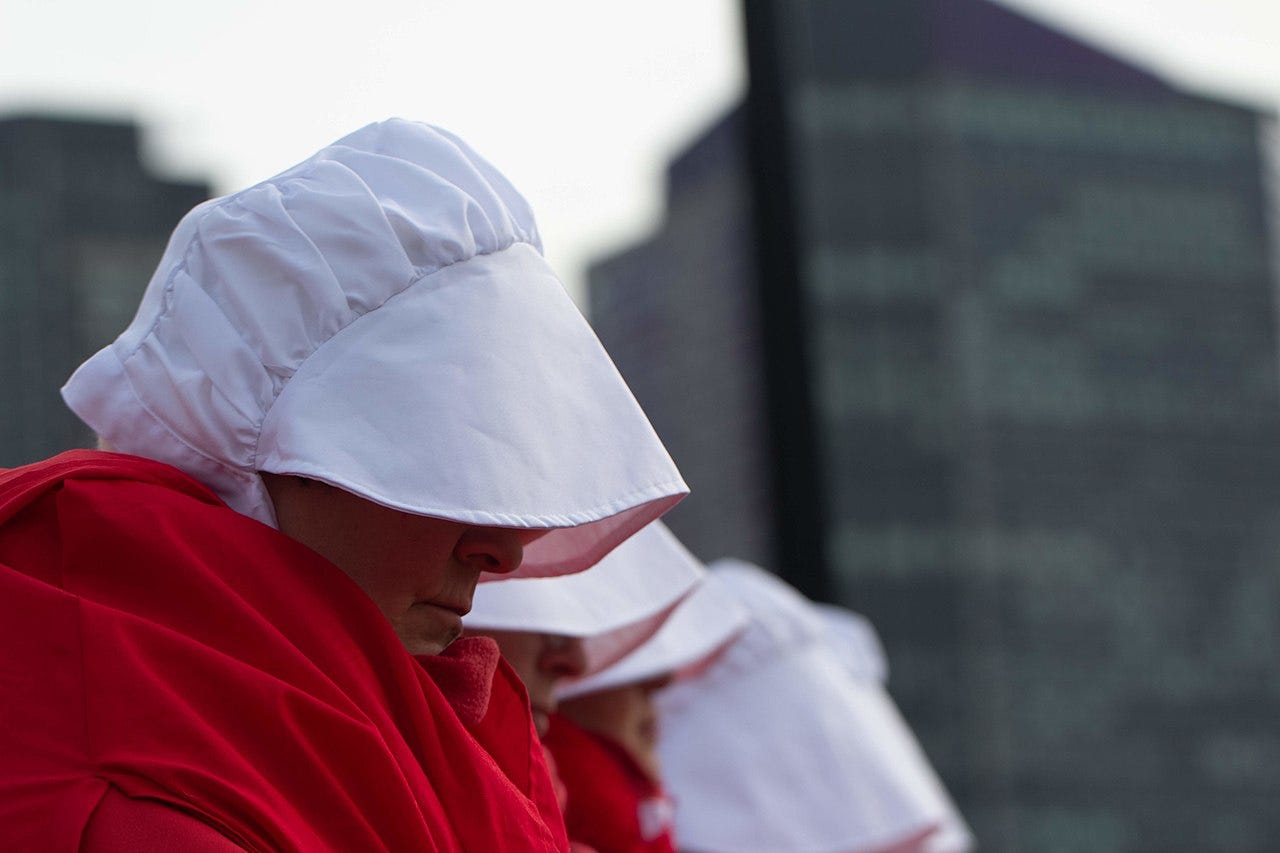It’s Not Hyperbolic When You Compare Anti-Abortion Laws to ‘The Handmaid’s Tale,’ Senator Says
For every minute Texas abortion law is on the books, constitutional rights are being violated, according to former prosecutor
For many American women, the new abortion ban which went into effect in Texas Wednesday draws Margaret Atwood's Handmaid's Tale further from the realm of dystopian fiction and into reality.
Handmaid's Tale, which also has been adapted as a Hulu television series, tells the story of a near-term future in which women are the property of the state.
Meanwhile, the new law in Texas bans abortion after just six weeks of pregnancy — when many women aren't even yet aware they're pregnant.
The Texas ban is novel in that it allows private citizens to sue abortion providers and anyone else who helps a woman obtain an abortion — including those who give a woman a ride to a clinic or provide financial assistance to obtain an abortion. Private citizens who bring suits don't need to show any connection to those they are suing.
The law, which the US Supreme Court allowed to take effect, has been under fire from across the globe, as even the United Nations High Commissioner for Human Rights condemned the ban.

“The Supreme Court will hear a case from Mississippi that straight out argues that case for overruling Roe, just overruling it is overwhelming. By next summer, we could be living in our own version of The Handmaid's Tale where forced birth is the law in large sections of the law, including for children,” MSNBC host Joy Reid said on her Wednesday evening program. “Eleven states have trigger laws that are just lying in wait for Roe v. Wade to be overturned, and more would likely follow with 97 abortion restrictions enacted in 19 states so far this year. Joining me now, Sen. Elizabeth Warren of Massachusetts.
“Senator Warren, people think it’s hyperbolic when I tweet about The Handmaid’s Tale coming to America, but I don't think it seems hyperbolic now. Does it to you?” Reid asked.
“No,” Warren replied. “You know, I lived in an America in which abortion was illegal when I was young, before Roe v. Wade. And when abortion is illegal, rich women still get abortions. Women with resources still get abortions. Women who have time and who have friends in other places will still get abortions.”
Roe v Wade is the landmark 1973 Supreme Court decision which legalized abortion services across the United States.
Former federal prosecutor Barbara McQuade took the Supreme Court to task for failing to step in and issuing an emergency stay to prevent the Texas ban from going into effect while its opponents had a chance to mount a case against it.
“I think this silence is deafening. Because for every minute that this law is on the books, and it is as of midnight tonight, last night, and today, constitutional rights are being violated,” McQuade said. “And so the purpose of emergency stays are is to preserve the status quo while lawsuits can be litigated, while courts can work things out. Because it takes time to do the briefing and to hear the arguments.
“And so emergency stays are generally granted if you can prove a couple of things. One is a likelihood of success on the merits. In light of Roe vs. Wade that seems likely. The other is whether there will be irreparable harm in the absence of a stay or harm to the other party if there is a stay,” she added.
Do you find this post of value?
Please share it…


